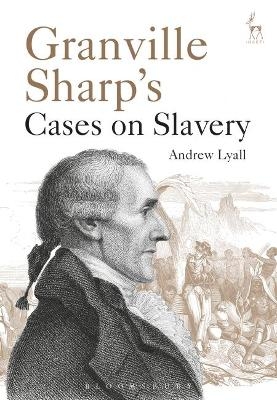
Granville Sharp's Cases on Slavery
Hart Publishing (Verlag)
978-1-5099-1121-9 (ISBN)
The second purpose, outlined in the Introduction, is to give a social and legal background to the cases and an analysis of the position in England of black servants/slaves brought to England and the legal effects of the cases, taking into account the new information provided by the transcripts. There was a conflict in legal authorities as to whether black servants remained slaves, or became free on arrival in England.
Lord Mansfield, the chief justice of the court of King's Bench, was a central figure in all the cases and clearly struggled to come to terms with slavery. The material provides a basis for tracing the evolution of his thought on the subject. On the one hand, the huge profits from slave production in the West Indies flooded into England, slave owners had penetrated the leading institutions in England and the pro-slavery lobby was influential. On the other hand, English law had over time established rights and liberties which in the 18th century were seen by many as national characteristics. That tradition was bolstered by the ideas of the Enlightenment.
By about the 1760s it had become clear that there was no property in the person, and by the 1770s that such servants could not be sent abroad without their consent, but whether they owed an obligation of perpetual service remained unresolved.
Andrew Lyall is a retired member of staff in Law at University College Dublin.
INTRODUCTION
Granville Sharp (1735–1813)
The Manuscripts
Jonathan Strong
The King (Lewis) v Stapylton
Somerset v Stuart
Gregson v Gilbert (The Zong)
Black Servants Brought to England
Factual Background
State of the Law
The Case Law
Blackstone
The Royal Navy
The Cases
Jonathan Strong
The King (Lewis) v Stapylton (1771)
Somerset v Stewart
Versions of the Judgment
The Order
Scope of the Judgment
Attempts to Evade Somerset
Habeas Corpus and Foreigners
Slave Law in the Colonies
Villeinage in England
Gregson v Gilbert (The Zong)
The “Absolute Necessity”
Marine Insurance and Slave Trade Acts
Navigation and the Longitude Problem
Did it Really Happen?
TRANSCRIPTIONS
Jonathan Strong
King (Lewis) v Stapylton
Proceedings in the King’s Bench
Motions for Judgment
Granville Sharp’s Argument
Granville Sharp’s Remarks on the Case
Somerset v Stuart
First Hearing in the King’s Bench
Third Day, “Second Hearing” in the King’s Bench
Lord Mansfield’s Judgment
1. The Scots Magazine/Estwick version
2. Granville Sharp MS of the Judgment
3. Letter to the General Evening Post
4. Lincoln’s Inn, Hill MS version
5. Lincoln’s Inn, Ashhurst Paper Book
6. Lofft’s Report
Sharp’s Memoranda on Somerset v Stuart
Gregson v Gilbert
The Declaration in the King’s Bench
Proceedings on a Motion for a New Trial
Letter from Granville Sharp to Admiralty
An Account of the Murder of Slaves on the Zong
Letter from Granville Sharp to Duke of Portland
Bill in the Court of Exchequer
James Kelsall’s Answer
Gregson’s Answer
Extract from Martin Dockray MS
Minor Cases
De Grey Opinion
Cay v Crichton
Hylas v Newton
Sharp’s Remarks on Hylas v Newton
Legislation
Habeas Corpus Act 1679
Act of the Scottish Parliament, 1701 c 6
Slave Trade Act, 1788
Slave Trade Act, 1793
Slave Trade Act, 1798
Slave Trade Act, 1799
Letters
Letter from Blackstone to Sharp
Letter from Dr Fothergill to Sharp
Blackstone’s Commentaries
| Erscheinungsdatum | 23.02.2017 |
|---|---|
| Verlagsort | Oxford |
| Sprache | englisch |
| Maße | 169 x 244 mm |
| Gewicht | 922 g |
| Themenwelt | Geisteswissenschaften ► Geschichte ► Regional- / Ländergeschichte |
| Recht / Steuern ► EU / Internationales Recht | |
| Recht / Steuern ► Öffentliches Recht ► Verfassungsrecht | |
| ISBN-10 | 1-5099-1121-9 / 1509911219 |
| ISBN-13 | 978-1-5099-1121-9 / 9781509911219 |
| Zustand | Neuware |
| Haben Sie eine Frage zum Produkt? |
aus dem Bereich


